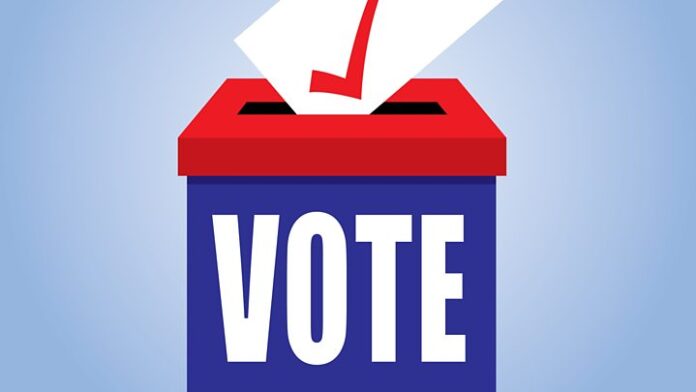
United Kingdom (1976 & 1997)
One of the most heart-breaking things about the UK’s attitude to Eurovision is that they have actually contributed so much to the history of the contest. These two showcased winners represent the best evidence to that effect. ‘Save Your Kisses for Me’ may seem quite twee to anybody watching in for the first time today with no real context of the musical culture of the time but be in no doubt that this is a colour-by-numbers pop song of the time complete with bouncy lyrics, iconic choreography and that twist at the end (laying the framework for Bucks Fizz’s victory five years later). Their performance in The Hague in 1976 remains a classic to this day. Then there’s the most recent British victory which by contrast feels relevant, heartfelt and meaningful over twenty years on from its success in Dublin in 1997. Katrina & The Waves’ ‘Love Shine a Light’ is such a simple song but even in the midst of COVID-19, a pandemic that nobody could have foreseen, it says everything that needs to be said without saying too much. The UK’s best days at Eurovision are definitely behind them but there is enough evidence to suggest that when they do the simple things well, the results follow along.
Switzerland (1956 & 1988)
We’re heading back now to where it all began in Lugano in 1956 and a certain Lys Assia triumphed for the host nation with her sweet ‘Refrain’. Given the fortune of Switzerland having had French, German & Italian available to compete with during the days of the language rule, it is a wonder that Switzerland didn’t subsequently win again until 1988 when a young Canadian woman by the name of Celine Dion triumphed in Dublin. Around these two successes, Switzerland have been toying with their identity at the contest. There was the French ballad sung by a woman era of Swiss Eurovision, the fun performance by a band era of Swiss Eurovision, the slightly bonkers German era of Swiss Eurovision and now, the passionate solo man era of Swiss Eurovision. Arguably, the most recent one is the one that is set to bring them success again and bring the contest back to the Alpine nation. One thing that is for sure is that Swiss Eurovision comes in many flavours and if there’s even one flavour that you like passionately enough, it should just be good enough to earn your vote.
Russia (2008 & 2015)
Philipp Kirkorov, Alsou, t.A.T.u., Dima Bilan, Buranovskiye Babushki, Dina Garipova, Polina Gagarina, Sergey Lazarev, Little Big. This isn’t just a list of Russian Eurovision acts, these are the names of some of the greatest musicians in Europe. People may well look at Russia as a country today and have a significant number of political and philosophical issues. One thing that definitely can’t be denied however is that from a very early period of their participation at Eurovision, they have been in it to win it. These are best signified by Dima Bilan’s victory in Belgrade in 2008 when he brought along a renowned Olympic gold-medal winning figure skater and a Hungarian violinist playing his Stradivarius just for good measure and in Vienna in 2015 when Polina Gagarina’s incredible dress, white aesthetic and on-stage projection show was pipped to the post by a certain Måns Zelmerlöw. When Russia come to Eurovision, they go hard or go home, throwing everything at the wall to exert their cultural dominance on the continent. Whilst some may look at that sentiment and feel uncomfortable about the sense of cultural manipulation present in that activity, I look at it and smile because I know that the music will be excellent.
Latvia (2000 & 2002)
When Latvia first came to Eurovision in 2000, nobody really knew what to expect. They had waited so much longer for their first participation at Eurovision in comparison to their neighbours. They sent famous Latvian band Brainstorm to Stockholm and successfully got their brand of laid back fun across to an international audience, placing third on the night. Latvia’s 18th placed finish the subsequent year might have confined Brainstorm’s success to being seen as a one off. However, come the next year in Tallinn, Marie N (who had unsuccessfully attempted to represent her country in the two previous years) stepped forward and in one of the closest voting sequences of all time narrowly beat Ira Losco to bring the contest back to Riga. Unfortunately for Latvia, things have pretty much been downhill since then. Since a 5th place finish in 2005 for Walters & Kazha, their only appearances on the left side of the Grand Final scoreboard have been courtesy of a group of pirates and Aminata. They have also placed bottom of their Semi-Final on four different occasions. So yeah, Latvia get it very right sometimes and very wrong sometimes but whatever they do, they do it big, they do it bold and it is an engaging watch. Surely that’s worth a vote or two?
Please vote no later than July 10th when we will release the vote for Group C, the vintage throwback group as we see which countries from Luxembourg, Denmark, Monaco & Serbia will qualify for the next round.
This article was written by Fin Ross Russell (Internationalist Eurovision Blog)


